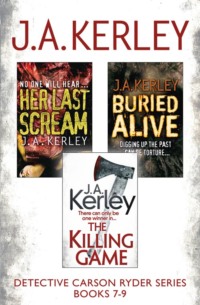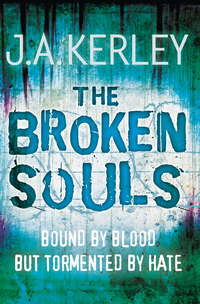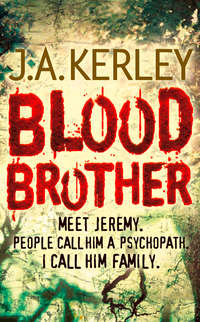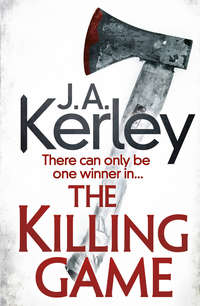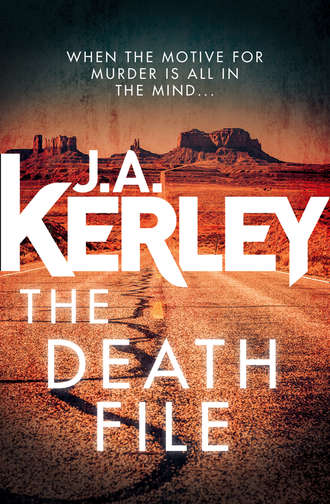
Полная версия
The Death File: A gripping serial killer thriller with a shocking twist
“Dr Leslie Meridien, client A-4329-09. We’ve stored her data for forty-seven months.” He pulled close a printed page. “The client printout from last week documents 2.5 megs of data in storage. But there’s nothing there.”
“The backups, Chaz,” Candace Klebbin suggested. “It’ll be safe there, right?”
“I JUST CHECKED THE FUCKING BACKUPS, YOU IDIOT!” Hinton railed at Klebbin. “DO YOU THINK I’M STUPID?”
“Chaz …” Larkin rasped. “Talk to me.”
Hinton swallowed like it hurt and turned to his boss. “A-4329-09 is gone, Kenneth … every last byte.”
Larkin put his hands on the edge of the desk and leaned close to the screen, incredulous. “You’ve done the restore protocols?” His voice was trembling.
“There’s nothing to restore. It’s like the data never existed. Even the shell that held them is gone.”
The CEO, lawyer, and tech director stared at the dark screen with open mouths and mute terror.
Novarro shot a glance at Klebbin.
“A good day to update my résumé,” the office administrator said.
5
“Angela didn’t practice any more, Detectives,” Professor John Warbley said to Harry and me, his eyes sad. “She taught.”
We were at the U of Miami. Warbley’s office was three doors down from Angela Bowers’s university digs. Harry had come to root through both Bowers’s office and life, at least as her colleagues knew it. There was, unfortunately, nothing in her office bearing my name or suggesting how it had come to be in her possession. We had already talked to seven colleagues over the course of the day, ending with John Warbley. A fit and trim man in his mid-fifties with graying hair, Warbley had been out of the department all day, but entered as we were leaving.
“Medical ethics?” Harry asked.
“It’s a growing field, given the choices both patients and healthcare professionals face on an increasing basis; end-of-life decisions, the pros and cons of assisted suicide, informed consent and so forth. As a psychologist, Angela was particularly interested in doctor–patient confidentiality and its ramifications.” He swallowed hard and turned away. “Jesus, I can’t believe she’s …”
“We’ll be gone soon enough, Professor Warbley,” Harry said, his big hand on the distraught man’s shoulder. “We need to know a bit more about Dr Bowers.”
“Who would do such a thing?” Warbley said plaintively. “Why?”
“That’s what we’re here to figure out. When did you last speak with Dr Bowers?”
“Yesterday afternoon. She took me to lunch to discuss a topic that, I take it, was a concern to a friend of Angela’s.”
“The topic?” Harry asked.
“My field. A question about medical ethics.”
“It didn’t pertain to Dr Bowers? Not personal?”
“It only affected an old friend and former college roommate, a psychologist in Arizona.”
Two thousand miles away, I thought, not pertinent.
“Did Dr Bowers seem worried about anything, Doctor?” Harry asked. “No boyfriend or significant-other problems?”
A sad head-shake. “Nada. And I’d have been among the first to know. Angela and I were close friends.”
We started to leave, but I had one more question, more for my own edification, since I’d been in tangles where ethics and justice were in conflict and had even lectured on the subject at a couple of symposia.
“What was the ethical question Dr Bowers was asked about?” I said. “In a broad sense.”
“It regarded concerns about doctor–patient confidentiality, among other legalistic permutations. The whole confidentiality topic is fraught with implications; a thorny road.”
“Because psychologists and psychiatrists hear the most intimate aspects of patients’ lives, right?” I said. “Dreams, wishes, fantasies, desires. Even the desire to harm or kill someone.”
He nodded. “For instance, what if, in the course of privileged and confidential conversations, a psychologist comes to suspect someone may – only may – have committed a serious crime? And that this crime may be being perpetrated on one of the psychologist’s patients. There is no proof, only suspicion. To reveal suspicions of this crime to the authorities likely violates doctor–patient privilege. To make matters even more difficult, it’s quite possible there may have been no criminal act whatsoever. Events are proceeding exactly as they are supposed to proceed. What is the psychologist’s legal obligation? Moral obligation? What if they diverge? And who decides what is right?”
“Thorny questions, indeed,” I said, wondering if Warbley was using his conversation with Bowers as the example.
“Consider that there’s also money involved,” Warbley said.
“And suddenly thornier,” I added.
We packaged a few pieces of Bowers’s life for further investigation: a calendar, appointment book and such, then interviewed several of the doctor’s colleagues. We drove to Bowers’s home while mulling the bottom line thus far: Dr Bowers was uniformly respected as a psychologist, an instructor, and a person, selfless in the giving of her time and intellectual prowess to various causes. “Who would harm such a person?” was the one question on every lip.
Bowers had lived in an apartment complex in Wingate, expensive and catering to professionals. The super had a bypass to the electronic locking system. We passed through the living room to her office, stepping delicately around the dried blood on the floor. Her workspace was in muted gray and green tones, indirect lighting, two plush chairs and a long wide couch which made me wonder if she didn’t see the occasional patient.
While I leafed through the deceased’s desk – the one my name had been in – Harry tried the files.
“Locked,” he said. “See anything like keys in the desk, Cars?”
I was going through the top center drawer, the usual pens and pencils and batteries and spare change and paper clips. A small key ring was in back, several small silver keys attached. “Try these,” I said, tossing them over.
“Bingo,” he said, opening the first of three cabinets, pulling the drawer and looking inside. “Six years ago,” he said. “Typewritten transcriptions of therapy sessions, judging by the language. Fits with the time she started working at the U and gave up private practice. I guess she …”
Harry froze, his eyes staring into the cabinet.
“What’s wrong?”
Wordlessly, Harry fished a simple Manila file folder from the drawer and held it up. The subject tab said “Carson Ryder.” He handed it to me, and I found a dozen or so photocopied photos and clippings inside.
“She didn’t just have my name on an index card,” I said, flipping through clipped newspaper reports, “Bowers kept a file on me, cases that made the papers. Check this out.” I held up a photo that had been in the Mobile Press-Register a few years before: Harry and me receiving Officers of the Year awards from the Mayor of Mobile, Alabama.
“Any idea why Bowers kept a file on a detective with the FCLE?” Harry asked.
“Absolutely none,” I said.
He leaned in to scrutinize the photo. “You need a haircut,” he decided. “But I look pretty damn fine.”
We returned to HQ to continue adding to the file on Dr Angela Bowers, riding up in the elevator with my boss, Roy McDermott, the head of the FCLE’s investigative services division and de facto agency head honcho. Roy’s square body was packed into a crisp blue suit, telling me he’d just returned from Tallahassee, where he was a force majeure in securing funds for the agency. Roy knew the names and predilections of every politico in the state down to their favorite foods and sports teams, traveling to the state capitol during budget sessions to give impassioned speeches too convoluted to follow, all with the same bottom line: The FCLE gets results, so keep the funding flowing, folks.
We did, they did, and thus the department – basically a state-sized FBI – was one of the best-funded agencies in the state. We loved Roy for getting us everything we needed, and he loved us back for working our collective asses off.
“Hey, guys,” Roy said, yanking off his tie and jamming it in his suit pocket, the slender end dangling out like fifteen inches of flattened, redstripe snake, “did I read the daily reports right … a murdered psychologist had Carson’s name in her desk?”
“We’re working on finding out why,” I said, not mentioning the latest wrinkle.
Roy raised an eyebrow. “Detective Nautilus is working on finding out why, right?”
“Exactly,” Harry said. “Carson was just along for the ride.”
“If you’re gonna ride at all, Carson, ride in back,” Roy said, patting down the hay-bright cowlick that immediately bounded back in defiance. “And am I correct in my assessment – sent to you last month – that you’re getting a big backlog of vacation time?”
I was never big on vacation unless I had someone to enjoy it with. In the past this was a girlfriend or suitable feminine companionship, but I’d taken up full-time with Vivian Morningstar, whose hospital schedule currently precluded vacation and who would not be overly happy if I ran off with even a temporary vacation companion.
“I, uh – yep, Roy. I’ll vacation, uh … soon.”
“Didn’t you claim a heavy caseload and say you’d take some time off when Nautilus came on board?”
“I, uh may have said …”
“Is this not Nautilus standing beside you, Carson?”
“It seems so,” I admitted. “But Harry’s new and needs—”
Roy turned to Harry. “Can you function without Ryder, Detective Nautilus?”
Harry, blast him, gave it two beats and a grin. “Sometimes better.”
Roy clapped a huge red hand on my shoulder and pulled me close, half hug, half threat. “There you go, Carson, you’re covered, even more when Gershwin gets back next week. Take some time off. Recharge the batteries.” He paused, thought. “Y’know, that’s an order.”
And then the elevator door opened and the whirlwind of Roy McDermott blew out, pulling his pocket recorder as he turned the corner to his office, bellowing, “Memo to self, make sure Ryder starts taking his freaking vacation time!”
“Damn,” Harry said, staring at the corner Roy had vanished around. “He always like that?”
“Not generally,” I said. “Looks like he remembered his Prozac this morning.”
6
Jeffrey Cottrell’s desk was shaking so hard one of the drawers rolled open. His nameplate – T. JEFFERSON COTTRELL, ESQ. – tumbled to the blue pile carpet, followed by a ceramic mug loaded with pens and pencils. Cottrell’s eyes were on the closet door across the room, opened wide and mirrored on the inside so he could enjoy the reflection, his jeans down to the tops of his hand-tooled cowboy boots, a woman on the desk with her red dress hiked to her waist, ankles locked around his buttocks.
“Oh yesssss …” the woman hissed as Cottrell’s hands raked her side-drooping breasts.
He shot a glance at his watch. Shit, lost track of time. He increased his rhythm, pushing to the finish, pinching the engorged nipples.
“Easy, Jeffrey,” the woman said. “You’re hurting …”
Cottrell grabbed broad hips and pulled the woman tight as his orgasm arrived in a frenzy of grunts and spasms.
“Urrrr … UHHH.”
And then he was backing away on unsteady legs and reaching for his pants.
“Jesus, Jeffy,” the woman said, pulling down her skirt with one hand and pushing back a stack of disheveled brass-blonde hair with the other. “You’re a crazy man. But fun. Got any more of that Cuervo?”
“You gotta get gone,” Cottrell said, tightening the concho belt around his Levi jeans. “I’m supposed to meet a client.”
“At ten at night?”
“It’s the law biz, hon.” He slapped her ass. “Come on, get moving.”
The woman shot him a dark glance, had a second thought, pecked his cheek with a kiss. “You gonna take me to Casa Adobo this Friday?”
“Yeah, sure. Use the back door, would you?”
A sigh and the woman slung her purse over her shoulder and was gone. Cottrell put the fallen items back on the desktop, pulled on his black sport coat and popped a breath mint, his mouth still tasting of tongue and tequila. He buttoned his pink Oxford shirt in the mirror, slipping the loosened bolo tie to his throat and finger-combing the long silver hair back over his ears. It might start tonight, he thought. Less than three weeks until the reading of the Kubiac will. It might not finish tonight, but it had to start soon.
Let’s get this done, kid …
Cottrell sucked in his gut and threw faux punches at the mirror. Forty-six and I still got it … A bit of roll over the belt, but he’d been busy lately, and the fucking gym was a drag. He had to look into getting a personal trainer, some skank with a hard-body going on. Both of them could get a workout.
Cottrell heard the buzz of the bell in the entry and shot a look at his Rolex, a gift from Ramon Escheverría, a client he’d made good money from in the past, with more undoubtedly coming in the future. El Gila … a scary street name, but Escheverría liked Cottrell, a very good thing.
Eleven on the nose; the kid’s on time at least.
Cottrell went to the door and saw Adam Kubiac, a lithe young woman at his side. His eyes expressed several seconds of visible surprise at seeing Kubiac was accompanied, and he extended a lamp-tanned hand to him. “I haven’t had a chance to call you again, Adam, but I want you to know you have my deepest condolences. Anything I can do to—”
Kubiac swept by with his hands jammed deep in his pockets. “Well, uh … sure,” Cottrell said. “Step back into my office and let’s get comfortable.”
In addition to Cottrell’s desk and chair, the room held a puffy brown leather sofa against a wall and two high-backed chairs facing the desk, also brown leather. “Have a seat, folks,” Cottrell said, gesturing to the chairs. The woman took a chair, sitting and crossing long and slender legs. Kubiac fell into the sofa, arms crossed over his chest. Cottrell leaned back in his swiveling chair and regarded Kubiac with warm sincerity.
“Who’s your friend, Adam?” Cottrell said, smiling politely at the gorgeous young woman while trying to avoid winking.
Kubiac ignored the question, arms tightly crossed as he glared fire at Cottrell.
“I think I know what you’ve come to discuss, Adam. But I have to be perfectly clear that nothing’s going to change.”
“You wrote the fucking thing, bitch,” Kubiac spat. “Hashtag: fuckAdamKubiac.”
Cottrell sighed. “I basically took dictation, Adam. The will reflects your father’s wishes. I probably shouldn’t have showed it to you, but … Hey, I wish I could change things.”
Kubiac’s eyes tightened to slits. “One freakin’ dollar to me. Twenty million to charities and shit? WHAT THE FUCK WAS GOING ON?”
Cottrell tried to shape his face somewhere between empathy and inspirational. “Maybe the will was your old man’s way of saying you’ve already got all you need, Adam: It’s that amazing mind of yours. You can use it to make your own—”
“YOU’RE THE KUBIAC FAMILY LAWYER, RIGHT?” Kubiac screeched. “WHAT ABOUT ME!”
“Adam …” the woman said quietly. “We talked about this.”
“He’s one of them,” Kubiac snarled as if Cottrell wasn’t there. “A Neanderthal.”
“I fought for you, Adam,” Cottrell said. “I told your father: ‘Think what you’re doing, Eli. Don’t punish Adam like this.’ But your father … you know how Eli could get, Adam – like you kid – he was adamant. I figured I could change his mind with just a little time, but, uh, the sad circumstances and …”
“I’M NOT PAYING YOU A CENT, ASSHOLE!”
“Uh, actually, that’s all been taken care of, Adam.”
“What … did you steal a million bucks off the top?”
“Come on, Adam,” Cottrell said, adding irritation to his voice. “Don’t treat me like this. I’ve been on your side from the start. I think you got screwed royally, unfairly … there, I said it.”
Come on, you screwy little bastard. You’re supposed to be so goddamn smart … put it together …
“IT DIDN’T DO A LOT OF GOOD, DID IT?”
The girl left the chair to sit beside Kubiac, her arm around his shoulders as she spoke into his ear so softly that Cottrell could catch nothing. Kubiac stood and pushed the dark mop of hair from his blazing eyes.
“I’ll be outside,” he snapped at the lawyer. “Talk to her from now on.”
“But Adam, you were the one who called me to—”
“Talk to HER!”
Kubiac glared at the lawyer and zipped his forefinger over his lips, Done talking. He strode through the door and slammed it shut. Cottrell winced. Seconds later heard a tapping at his floor-to-ceiling glass window and opened the blinds. Kubiac stood outside, his middle finger aloft in Cottrell’s face.
Cottrell sighed and turned away, conscious of Kubiac’s eyes burning into his back. He could have closed the blinds, but the goofy kid would probably have driven his fucking car through the window. He re-sat in his desk chair and looked at the woman. “How much has Adam told you?”
The lovely woman offered a hint of smile. “Everything. He trusts me.”
Cottrell nodded. “Then you know that when Adam turns eighteen he comes into his father’s legacy.” His eyes lifted to the woman’s eyes and held. “I hope he starts to think about it.”
The woman shot a glance at Kubiac, then returned her eyes to the lawyer. “He thinks about it a lot. I’m sorry if we took up your time, Mr Cottrell. Adam really wanted to come here.”
“He needed to vent. He’s angry.”
“Very.”
“I’m sorry,” Cottrell said, standing and holding out a hand. “But I didn’t get your name, Miss …”
The girl offered her hand over the desk. “Zoe Isbergen,” she said. They glanced toward the window as Kubiac spit against it, thick and viscous.
“And your relationship with Adam, Miss Isbergen?” Cottrell said with a lift of his eyebrow.
A wisp of smile. “Complex.”
7
It was eight minutes past midnight when Tasha Novarro pulled into the Dobbins Point Overlook in South Mountain Park, its sixteen thousand-plus desert acres and jagged peaks making it the largest municipal park in the continental US. The Overlook, far above the desert floor and up a winding grade, was always crowded during park hours, but the park had been closed since seven p.m. No problem for Novarro: South Mountain was under the jurisdiction of the Phoenix Police Department, the cop at the entrance long used to Novarro’s nighttime visits and waving her through the gate.
The Dobbins Point Overlook was Novarro’s own little parcel of Paradise, her sole company the spectral saguaros silhouetted in the light of a gibbous moon. Behind and above her, on the peak, stood a vast array of communications antennae with red lights blinking against the liquid sky.
When Novarro was young, she’d thought the lights themselves formed the communications, a version of the heliographs she’d read about in a book borrowed from the library, the lights flashing semaphoric messages to towers miles away. Only later did she learn that the structures communicated via invisible transmission of short-wave energy called microwaves and the lights were only there to ward off aircraft.
Novarro preferred her earlier interpretation.
She shut off her engine and stepped from the cruiser, looking north across a crucible of light: Phoenix the blazing nexus, Glendale to the west, Mesa to the east, Scottsdale northeast. Headlights shimmered down the geometric maze of streets as a jet dropped from below the moon to land at Sky Harbor International Airport, five miles distant and one of the few airports located in the heart of a major metropolis.
A woman killed, Novarro thought, staring into the vortex of light. She’d spent the last three days interviewing friends, neighbors, and business associates of Leslie Meridien, PhD. A pleasant and outgoing woman, by all reports, no apparent enemies.
No one had an answer, no one understood.
“Leslie was more than a psychologist,” a friend had wept. “She was a force for good.”
The killing had been brutal but efficient. Efficient murders were not the norm, Novarro knew from seven years in uniform and eight months in Homicide. The vast majority of killings were messy affairs, anger- or turf-driven, with slashing blades or emptied bullet clips, ball bats or shotgun blasts, people killed for being in the wrong bed or on the wrong corner.
Meridien’s murder was different. It was dispassionate, ice cold. And all of the victim’s patient files were gone, taken in a manner that baffled high-level computer types.
Merle Castle put it in a box he knew: breaking and entering, probably committed by Hispanics. But a television and watch had been left behind … Overlooked? Not by anyone professional enough to kill so efficiently. It was a wrong note, hell, a wrong chord.
Novarro paced the desolate parking lot for a full hour and came to two conclusions: One, that a highly competent professional had broken into Meridien’s cloud account and erased it, and – given high competence as a standard – two, a similar professionalism was likely employed in Meridien’s murder and what she believed was a staged robbery.
There were fierce and desperate people in the valley who would kill for a week’s worth of heroin, pulling a trigger and running. Move up a level and several thousand dollars bought a backseat strangling and a body dumped in the desert.
This was a higher level still.
Her mind reeling with questions, Novarro returned to her vehicle and descended the mountain, angling down Central Avenue and aiming for her downtown home.
Novarro had owned a house in midtown for eight months, making the down payment two days after getting her detective’s shield and the raise accompanying the new badge. The neighborhood was sketchy, but only four blocks from the Roosevelt Historic District, its gentrification effects moving like a slow-motion tsunami toward Novarro’s block.
It was the first home ownership in Tasha Novarro’s family. She’d grown up in a double-wide trailer at the edge of the Salt River Pima-Maricopa Indian Community between Mesa and Scottsdale, her mother there mostly, her father never. Though it was Novarro, her younger brother, and mother, rarely were there just the three of them in residence; a ragged procession of relatives constantly passing through the house, sometimes for hours, sometimes months. The fragile emotional conditions at the house led Novarro’s Aunt Chyla to proclaim the domicile “a boxed set of thunderstorms.”
Novarro sought refuge in school, her dedication to study leading to a pre-law scholarship at Arizona State University. Her contribution would have been forty-five hundred dollars saved from working nights and weekends at a Ranch Market in northeast Phoenix, but one of her distant cousins – a handsome thirty-year-old charmer needing a place to stay following a forgery stint in prison – boogied off to points unknown after two months, taking her virginity and checkbook and emptying her account before he disappeared.
Left with only grades and ambition she went to the police academy because it was an arm of the law and was free.
And maybe, someday …
Novarro swung around the corner and onto her street, driving to midblock and pulling into her driveway. It was a small house and the windows were grated out of necessity, but she’d spent almost a thousand dollars and dozens of hours landscaping the yard, hard brown dirt and sand when she’d purchased it, beaten down by three large dogs. Now the driveway was bordered with bright flowers, a desert willow embellishing one corner of the boxy structure, a palo verde the other. The backyard held a lime tree that had somehow survived the canine onslaught. It wasn’t much, but everyone said it was the prettiest house on the street.


